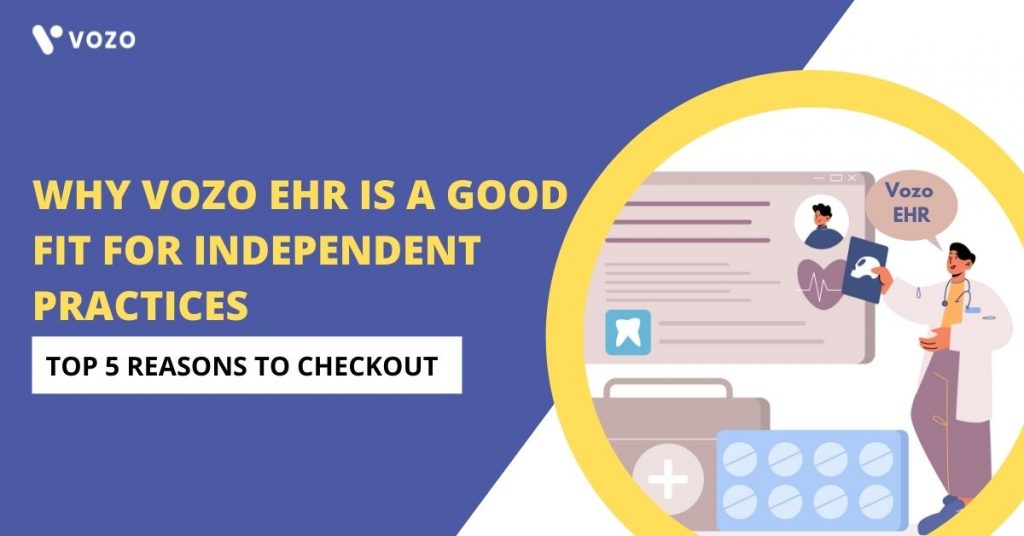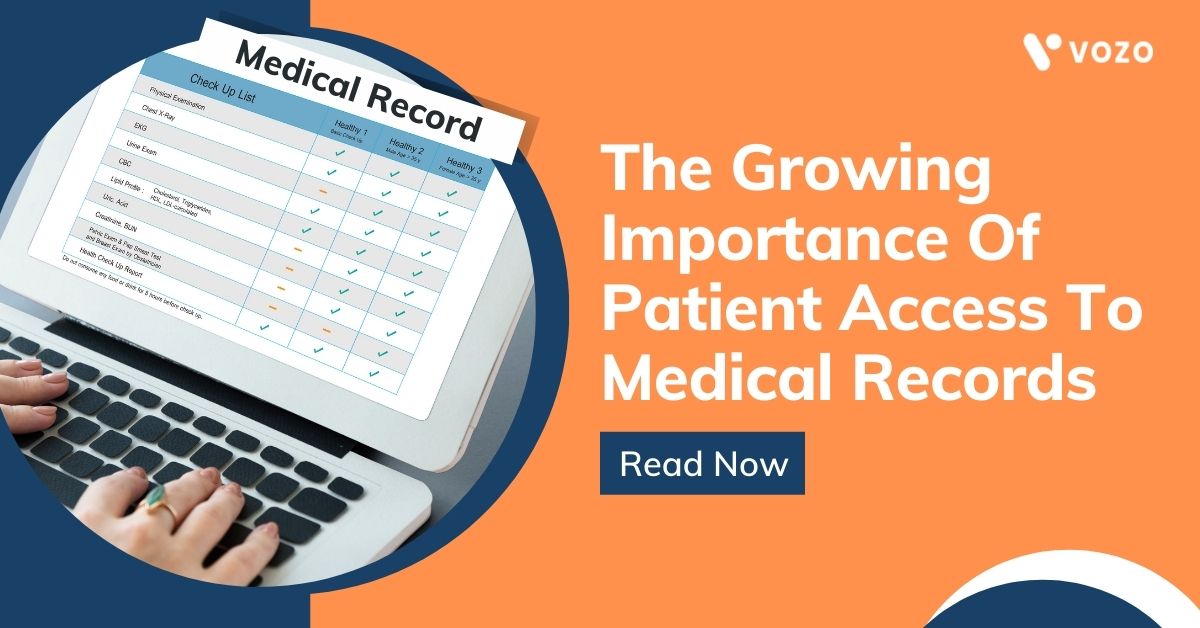The Growing Importance Of Patient Access To Medical Records
We live in a world where digitalization is everything. And most Americans these days, after the pandemic happened, are willing to cherish their health. They want their health data to be easily accessible and better protected for achieving their health goals. This showcases the importance of patient access to medical records.
The easy access to medical records by the patients will help them to be equipped and empowered to make clear and better decisions regarding their health and lifestyle.
Luckily the importance and patient access to medical records are on the rise now with the rocketing increase in the usage of portals and application programming interfaces (APO) integrations, providing more data available for the consumers. Let’s dive into further things.
Medical Records

According to a source, “the terms medical record, health record, and medical chart are used somewhat interchangeably to describe the systematic documentation of a single patient’s medical history and care across time within one particular health care provider’s jurisdiction”.
A medical record includes a variety of types of “notes” entered over time by healthcare professionals, recording observations and administration of drugs and therapies, orders for the administration of drugs and therapies, test results, x-rays, reports, etc.
The maintenance of complete and accurate medical records is a requirement of health care providers and is generally enforced as a licensing or certification prerequisite.
The Importance Of Patient Access To Medical Records

So, the question, “why does patient access to medical records matter the most?” might rise to those who don’t have access to them. Having access to your medical records means having control over your health and health decisions in short.
Who doesn’t want that? Using the info, you can eliminate the chances of errors and mistakes that could happen and avoid the harm that could cause to your treatment decisions.
Initially letting the healthcare providers alone deal with the medical records led to many problems such as incorrect data entry, manipulation of patient data, etc. But after providing access to medical records, the results were increased patient engagement, improvement in treatment cooperation, enhanced patient experience, etc. Let us see them in detail now.
The Pros Of Providing Patient Access To Medical Records

Increased patient engagement:
Think of a healthcare system without the engagement of the patients in anything relating to their care. Patient engagement is an important factor to improve treatment outcomes.
Without simple, easy, and secured access to their medical records, how will the patients be fully engaged in their care? Providing access to medical records by the patients increases their engagement rate, will make them proactive about their medical care and makes them more alert when it comes to what’s going on with their health.
Patient engagement allows them to actively collaborate with healthcare providers in decision-making, making the patient-provider relationship stronger, and increasing positive patient outcomes.
RELATED: Patient Portals Vs Patient Engagement: How It Relates?
Enhanced patient experience:

Patient access to medical records provides better transparency and a patient-centric care experience. This allows the healthcare consumers of this modern world to manage their healthcare conveniently and flexibly.
And offering a better digital experience to the patients can help the healthcare practices to attract and retain more patients. See, it’s beneficial to everybody.
Improvement in treatment cooperation:

These days patients are raising queries even if they have a pinch of doubt on anything. It’s clear now that they need answers for everything. This kind of proactive and engaged patients will adhere to treatment plans and take their medicines as prescribed by the doctors.
When they have access to EHR clinical notes, even patients with multiple chronic conditions are more adhere to the medication prescribed and the treatments suggested for them.
Cons Of Providing Access To The Medical Records
Offering full access to medical records could open up doors for new legal concerts for clinicians.
- There is a risk of allowing a potential hacker or a healthcare data thief to access and steal patient data, resulting in identity theft, if it is without proper precautions and security measures.
- Allowing patients access to medical records is a concern about the security, privacy, and confidentiality of the health records.
- The findings, if any, regarding the misinformation, diagnosis, etc, may increase the anxiety amongst patients.
- This access is often part of government strategies and it may be complicated for most of them.
- Allowing access to patients may sometimes force the physicians/clinicians to alter the information of the documentation.
- To satisfy the patients, the medical records may be tailored. This may mislead other clinicians and affect the care provided by them.
The Emerging Laws Regarding The Patient Access To Medical Records
In April 2021, the United States government required all health organizations to share medical records with patients electronically, without charging any money. The patients were allowed to see doctor’s notes and other information in their electronic medical records.
The 21st Century Cures Act allows patients to read notes to recap their visit to a doctor’s office and look at test results electronically. Accessing one’s doctor’s notes required long wait times and fees in the past. The Health Insurance Portability And Accountability Act (HIPAA) made it legal to review medical records, but it didn’t guarantee electronic access.
But now, 260+ healthcare organizations in the U.S. are already sharing notes with patients electronically with the help of new laws.
The Need To Find A Perfect Medical Record Partner

The growing importance of patient access to medical records helps the patients to stay up to date on their health information, treatment, medications, etc. This is very important to increase the engagement of patients and attract new ones.
As a healthcare provider or practice, you can improve patient access to their health information by offering them a patient portal with integrated Electronic Health Records (EHR). Your best option to stay ft in the competition and attract more patient engagement is “VozoEHR”.
With our cloud-based EHR integrated patient portals, your patients can view their full medical records at their own convenience, including clinical notes, lab results, medications prescribed, etc, and also can do secured messaging, appointment scheduling, record consultations, e-prescribing re-fills, etc.
Vozo also has a healthcare blog that could educate you on many valuable topics. Vozo Patient portal with integrated EHR can reduce your administrative burden, improve your practice workflow, and boost your productivity.
Waiting is not suitable for successful practices like yours. Visit us now.
“Let’s make your practice more patient-centric than ever, together”
About the author

With more than 4 years of experience in the dynamic healthcare technology landscape, Sid specializes in crafting compelling content on topics including EHR/EMR, patient portals, healthcare automation, remote patient monitoring, and health information exchange. His expertise lies in translating cutting-edge innovations and intricate topics into engaging narratives that resonate with diverse audiences.













